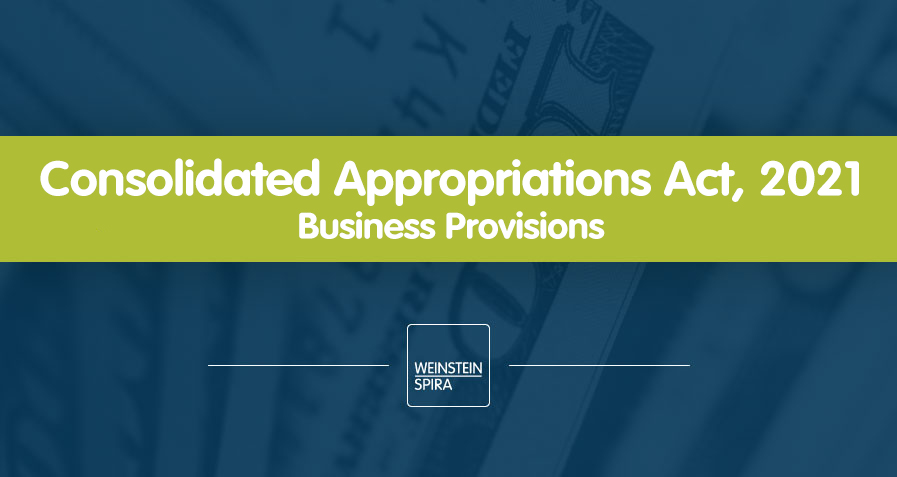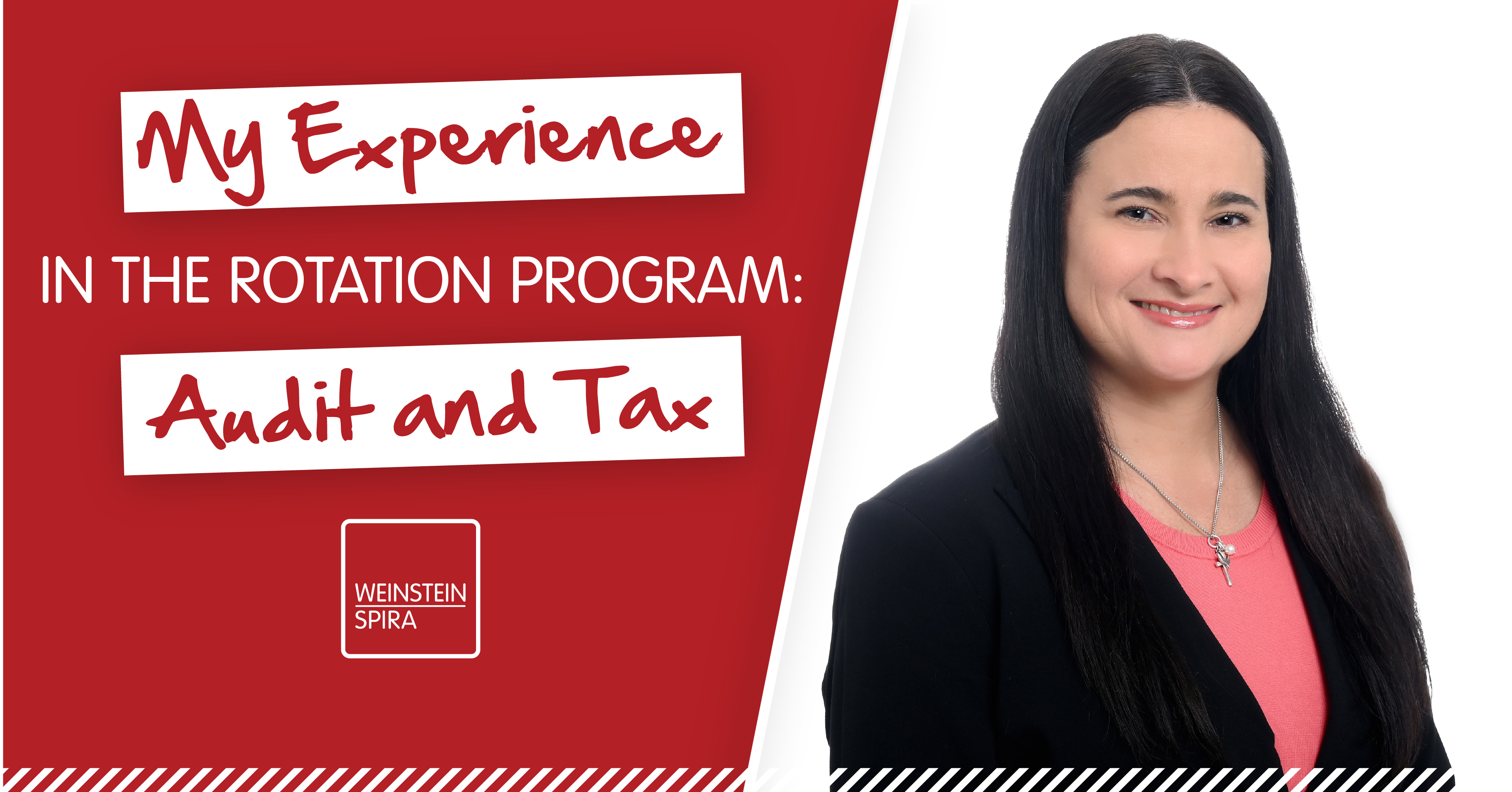The Consolidated Appropriations Act, 2021 (the Act) is now law. The Act provides $900 billion for COVID-19 related relief, including $285 billion for the Payroll Protection Program (PPP). In summary, the Act makes multiple modifications to existing laws, including the CARES Act, extends some tax provisions set to expire, and includes several new programs. Below are some of the business provisions:
Restart and Expansion of PPP Applications are due by March 31, 2021
Deductibility of Expenses: The Act clarifies Congress’ intent that expenses paid with forgiven loan proceeds are deductible for tax purposes.
Eligibility for Second Draw Loans: Companies with 300 or fewer employees that suffered at least a 25% decline in gross receipts between comparable quarters in 2019 and 2020 may apply for a second PPP loan.
Second Draw Loan Maximum: A second loan is limited to the lesser of $2 million or 2.5 times the average monthly payroll costs. For employers in hotel and food service businesses (NAICS 72 entities) the multiplier is increased to 3.5 times, resulting in greater loan amounts for such businesses. The Act limits each borrower, including borrowers with more than one physical location, to one second draw loan.
Expansion of Eligible Expenses: Forgiveness for any PPP loan, including a second draw loan, is still limited to 60% payroll costs and 40% non-payroll costs. In addition to payroll costs, mortgage interest, rent/lease payments and certain utility payments, the following expenses are also eligible for forgiveness:
Payroll Costs: expanded to include group life, disability, vision, and dental insurance
Additional Eligible Non-Payroll Costs:
-
-
- Operations costs: payment for any business software or cloud computing service that facilitates certain business operations
- Property damage costs: payment for property damage due to public disturbances occurring during 2020 not covered by insurance
- Supplier costs: payments made to suppliers for essential goods, pursuant to a contract or purchase order in effect before the covered period, or if for perishable goods, in effect before or during the covered period
- Worker protection costs: payments for personal protective equipment and costs to facilitate the adaptation of business activities to aid in complying with federal health and safety guidelines or any equivalent state or local guidelines related to COVID-19 during the period from March 31, 2020 to the end of the national emergency declaration
-
Economic Injury Disaster Loan (EIDL) Advances: Borrowers are no longer required to subtract EIDL advances to determine loan forgiveness amounts.
Covered Period: The Act allows borrowers to choose either an eight-week or 24-week covered period to determine loan forgiveness amounts.
Simplified Application Process: The Act simplifies the forgiveness application process for loans up to $150,000.
Other Business Provisions
100% Business Meal Deduction: The Act allows a temporary 100% deduction of restaurant business meal and beverage expenses (including any carry-out or delivery meals) paid or incurred during 2021 and 2022.
Employee Retention Tax Credit Expansion: The CARES Act created a new tax credit to incentivize companies to retain their workforce, available through the end of 2020. The provision originally provided eligible employers with a refundable tax credit equal to 50% of employee compensation (inclusive of health insurance) up to $10,000 per employee. The Act enhances the credit by increasing the credit percentage to 70% of qualified wages, expanding the wage base to $10,000 per employee per quarter (as opposed to per year), and reducing the thresholds for losses that businesses must meet to be eligible for the credit. Companies receiving PPP loans may claim the credit to pay any payroll expense not otherwise covered by PPP. The credit is set to expire on June 30, 2021.
Credit Extensions: The Act extends various expiring tax credits to December 31, 2025, including the Work Opportunity Tax Credit and the Empowerment Zone Tax Credit. The Paid Sick and Family Leave Credit is extended to March 31, 2021.
Please contact Weinstein Spira with specific questions regarding the Act or PPP loans.



